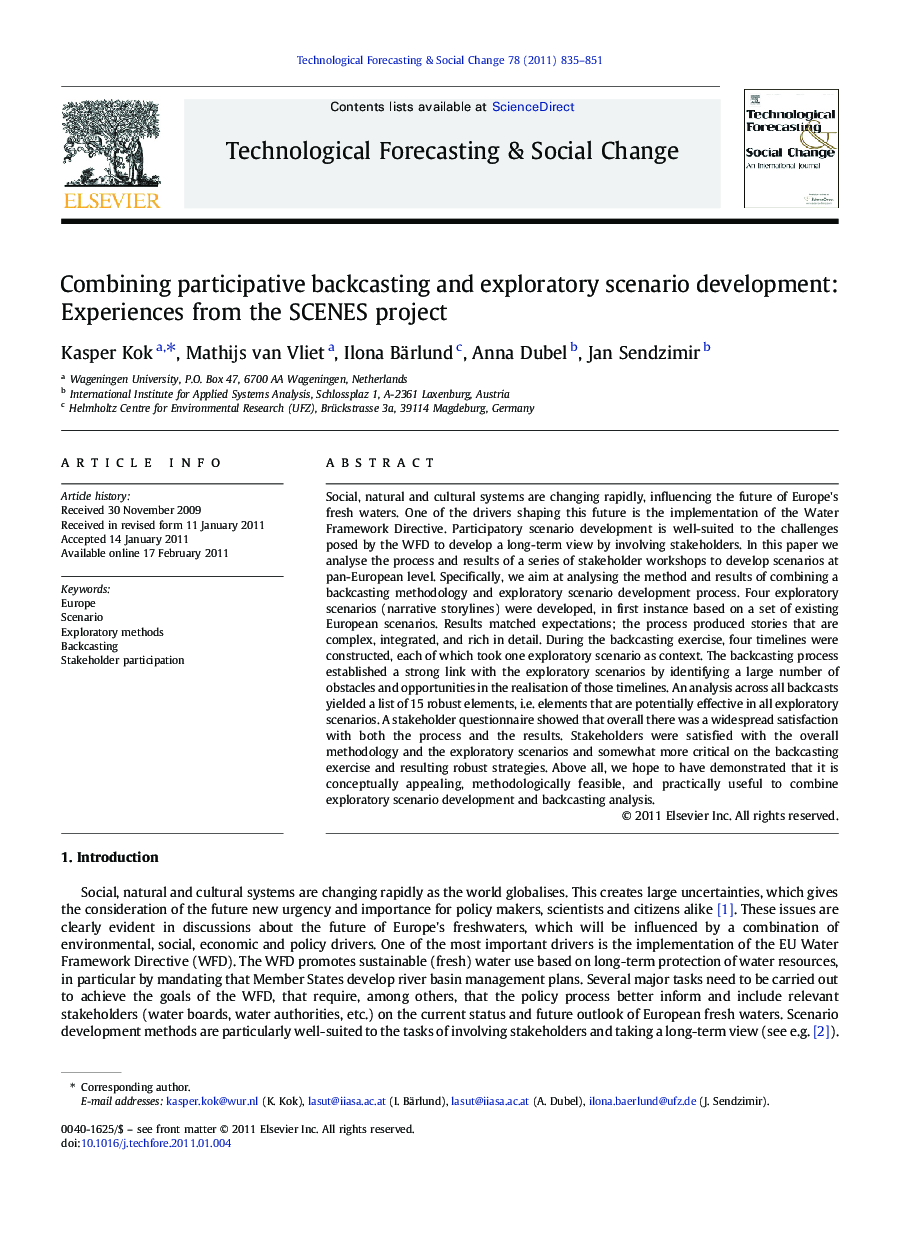| کد مقاله | کد نشریه | سال انتشار | مقاله انگلیسی | نسخه تمام متن |
|---|---|---|---|---|
| 896854 | 914864 | 2011 | 17 صفحه PDF | دانلود رایگان |

Social, natural and cultural systems are changing rapidly, influencing the future of Europe's fresh waters. One of the drivers shaping this future is the implementation of the Water Framework Directive. Participatory scenario development is well-suited to the challenges posed by the WFD to develop a long-term view by involving stakeholders. In this paper we analyse the process and results of a series of stakeholder workshops to develop scenarios at pan-European level. Specifically, we aim at analysing the method and results of combining a backcasting methodology and exploratory scenario development process. Four exploratory scenarios (narrative storylines) were developed, in first instance based on a set of existing European scenarios. Results matched expectations; the process produced stories that are complex, integrated, and rich in detail. During the backcasting exercise, four timelines were constructed, each of which took one exploratory scenario as context. The backcasting process established a strong link with the exploratory scenarios by identifying a large number of obstacles and opportunities in the realisation of those timelines. An analysis across all backcasts yielded a list of 15 robust elements, i.e. elements that are potentially effective in all exploratory scenarios. A stakeholder questionnaire showed that overall there was a widespread satisfaction with both the process and the results. Stakeholders were satisfied with the overall methodology and the exploratory scenarios and somewhat more critical on the backcasting exercise and resulting robust strategies. Above all, we hope to have demonstrated that it is conceptually appealing, methodologically feasible, and practically useful to combine exploratory scenario development and backcasting analysis.
Research highlights
► It is methodologically feasible to combine exploratory and backcasting approaches.
► Robust policy actions show the practical usefulness of combining approaches.
► Using fast-track scenarios holds a promise to speed up scenario development.
► Stakeholders expressed a widespread satisfaction with resulting scenarios.
► Weak governance structure and financial constraints are key obstacles to change.
Journal: Technological Forecasting and Social Change - Volume 78, Issue 5, June 2011, Pages 835–851